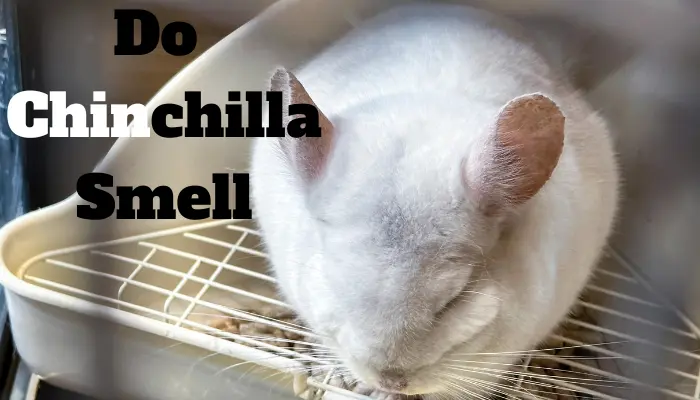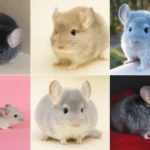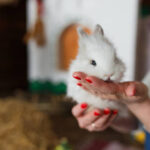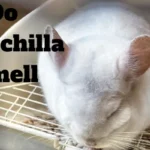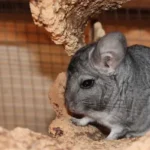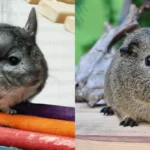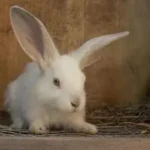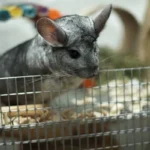Chinchillas, with their soft fur and charming personalities, make delightful pets for many animal enthusiasts. However, potential pet owners often wonder, “Do chinchillas smell?” This question is crucial for those considering these fluffy rodents as companions. In this comprehensive guide, we’ll explore various factors that contribute to chinchilla odor and provide effective strategies to manage and minimize it.
Factors Influencing Chinchilla Smell:
1. Natural Oils in Fur
Chinchillas possess dense fur that secretes natural oils to maintain its softness and shine. While this is a natural and healthy process, it can contribute to an odor over time. Understanding the role of these oils is crucial in managing chinchilla scent.
2. Diet and Digestive System
Chinchillas have sensitive digestive systems, and their diet significantly influences their overall health and scent. Certain food choices can impact their natural body odor. Exploring the right diet options is essential for a pleasant living environment.
3. Cage Cleanliness and Habitatchinchilla
Maintenance The cleanliness of a chinchilla’s living space directly correlates with potential odor issues. Regular maintenance and cleanliness routines can significantly mitigate any unwanted smells. A well-maintained habitat is crucial for the overall well-being of your chinchilla.
4. Health Issues Affecting Odor
Chinchillas, like any living being, can face health challenges that may manifest as unpleasant odors. Understanding the connection between health issues and scent is vital for identifying potential concerns early on.
Managing Chinchilla Odor:
1- Proper Grooming Techniques
- Dust Baths Chinchillas require dust baths to maintain their fur’s cleanliness and oil balance. Incorporating a regular dust bath routine is an effective way to manage natural oils and reduce odor.
- Brushing Fur Regular brushing helps remove loose fur and prevents matting. This simple grooming practice is essential for keeping your chinchilla’s coat healthy and reducing potential odors.
2- Appropriate Chinchilla Diet
- High-Quality Hay A chinchilla’s diet primarily consists of high-quality hay. Ensuring your pet receives the right nutritional balance is crucial for overall health and odor control.
- Limited Treats While treats can be enjoyable, an excessive amount can impact a chinchilla’s digestive system and contribute to unpleasant odors. Moderation is key when offering treats.
3- Cage Hygiene
- Regular Cleaning Schedule Establishing a consistent cleaning schedule for the chinchilla cage is paramount. Remove waste, replace bedding, and sanitize regularly to create a fresh and odor-free environment.
- Proper Bedding Choices Choosing suitable bedding materials is essential for odor control. Opt for materials that absorb moisture effectively and reduce bacterial growth, contributing to a cleaner cage.
Common Mistakes and Misconceptions:
- Over-Bathing Chinchillas: Contrary to popular belief, chinchillas do not require frequent baths. Over-bathing can strip their fur of essential oils, leading to an imbalance and potentially exacerbating odor issues.
- Inadequate Diet Choices: Neglecting the nutritional needs of chinchillas can result in digestive problems, impacting their scent. Choosing an appropriate diet is fundamental to preventing unnecessary odors.
- Neglecting Cage Cleanliness: Inconsistent cage cleaning routines are a common mistake. Neglecting this aspect can lead to a build-up of waste and bacteria, resulting in an unpleasant living environment for your chinchilla.
Tips for an Odor-Free Environment:
- Use of Air Purifiers Investing in an air purifier can help eliminate airborne particles and odors. This is particularly beneficial in shared living spaces where maintaining optimal air quality is challenging.
- Proper Ventilation in the Chinchilla Room Ensuring proper ventilation in the room where your chinchilla resides is essential. Fresh air circulation contributes to a healthier environment and reduces the concentration of odors.
- Location of the Chinchilla Cage Strategic placement of the chinchilla cage can impact odor dispersion. Avoid placing the cage in confined or poorly ventilated areas, and consider the overall flow of air in the room.
Health Check:
- Regular Veterinary Visits Routine veterinary check-ups are crucial for monitoring your chinchilla’s health. Detecting and addressing potential health issues promptly can prevent complications that may contribute to unwanted odors.
- Signs of Health Issues Related to Odor Understanding the signs of health problems linked to odor is essential. Unusual smells, changes in behavior, or alterations in eating habits may indicate an underlying health issue requiring immediate attention.
Conclusion:
In conclusion, the question, “Do chinchillas smell?” is nuanced and depends on various factors. By understanding the natural processes affecting chinchilla scent and implementing effective management strategies, pet owners can create a pleasant living environment for both themselves and their furry companions. Responsible care, proper grooming, and a balanced approach to diet and habitat maintenance are the keys to ensuring a happy and odor-free life for chinchillas as beloved pets.
